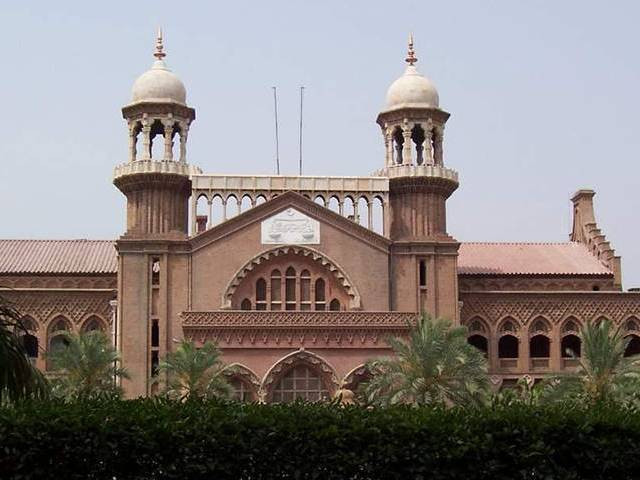Controversial flick: LHC requested to overturn ban on Maalik
PTI, two lawyers moved court against ban

Lahore High Court. PHOTO: FILE
The judge had earlier sought replies from the federal and provincial governments, the censor board etc. The counsel for the governments sought more time to file replies. Justice Mirza directed him to submit the replies by May 19. Pakistan Tehreek-i-Insaf (PTI) leader Mian Mehmoodur Rasheed and lawyers Munir Ahmed and Mehmood Alam have moved the court against the ban on the film’s screening.
Rasheed’s counsel Sheraz Zaka said the Ministry of Information, Broadcasting and Heritage had imposed a ban on the film’s exhibition on April 27. This, he said, it had no power to do following the passage of the 18th Amendment which devolved power to the provinces on this account. Zaka said the film was premised on corruption—a burning contemporary issue in the wake of the Panama Papers. He said its exhibition would not foment unrest among the masses.
Zaka said the film was neither against the sovereignty of Pakistan nor was it inimical to national ethos. He said the film furthered a message against the menace of financial malpractice. Zaka said no soap opera or film made to promote social change could be banned. He requested the court to overturn the notification banning the film.
Munir’s counsel Azhar Siddique said Prime Minister Nawaz Sharif had been conducting himself very strangely in the wake of the Panama Papers controversy. Over a few days, he said, Sharif had addressed the nation many times. Now, Siddique said, he had initiated a series of nationwide rallies to deflect attention from grave allegations of financial malpractice, money laundering and tax evasion against him and his relatives.
At all the meetings, he said, the prime minister did not comment on the allegations and stuck to announcing development initiatives in one constituency after another. Siddique said he was doing this to placate the nation which had become restive following the Panama revelations. He said the recent release of Maalik had only added fuel to the fire as it dealt with corruption, nepotism and abuse of power.
Siddique said the notification banning the film proved that the ministry had overstepped its jurisdiction. With the action, he said, it had also struck the spirit of the 18th Amendment just to shield the delinquent political elite. Siddique said the movie had been screened in cinemas across the nation for at least 15 days. For the sake of an argument, he said, if the film’s certificate had been withdrawn or it was declared uncertified, no opportunity was given to those involved in the film’s production to present a clarification. Siddique said this violated Article 10-A of the Constitution.
The counsel said being able to watch the film was a fundamental right of the people in accordance with Article-19. He said any action that violated Article-19 was void in terms of Article-8. Siddique said the notification banning the film was illegal when read with Article-4 and Article-5.
Published in The Express Tribune, May 13th, 2016.



















COMMENTS
Comments are moderated and generally will be posted if they are on-topic and not abusive.
For more information, please see our Comments FAQ